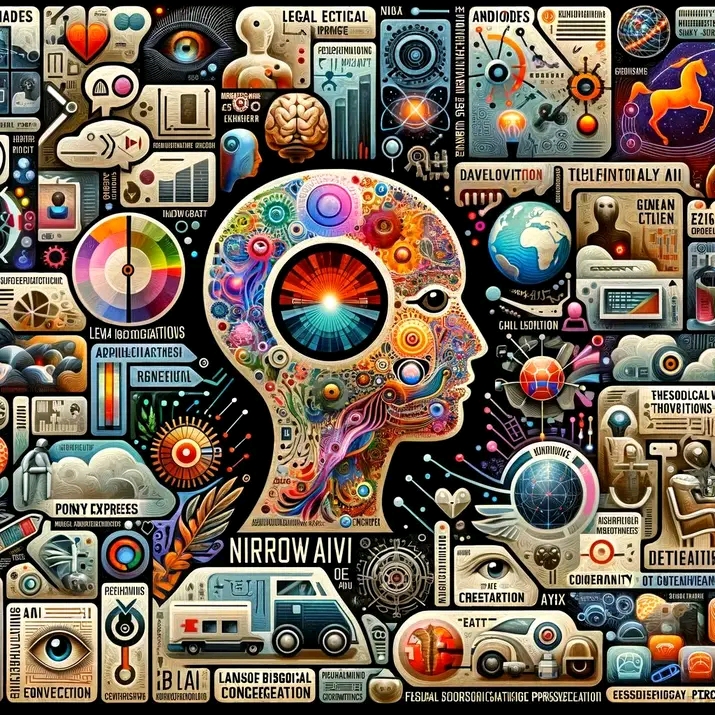
LEGAL IMPLICATIONS OF EMERGING TECHNOLOGIES
The legal implications of emerging technologies are vast and continually evolving. As advancements in fields like artificial intelligence, blockchain, and biotechnology accelerate, legal frameworks are challenged to keep pace. One prominent concern is privacy, as technologies often collect and process vast amounts of personal data. Existing laws may not adequately address these new challenges, necessitating updates to safeguard individuals.
Intellectual property rights also come into play, with issues surrounding the patenting and protection of novel technologies. The blurred lines between physical and digital realms can raise questions about liability, especially in cases of autonomous systems or machine learning algorithms that make decisions without direct human intervention.
Cybersecurity is another critical aspect, as the interconnected nature of emerging technologies creates vulnerabilities that malicious actors may exploit. Legislation and regulations must adapt to mitigate cyber threats and protect critical infrastructure from potential attacks.
Ethical considerations are increasingly important, with discussions around the responsible development and deployment of technologies. Governments and organizations are grappling with the need for guidelines to ensure that emerging technologies align with societal values and do not lead to unintended consequences.
International collaboration becomes essential to address global challenges associated with emerging technologies. Harmonizing legal standards can facilitate innovation while establishing a consistent framework for cross-border activities.

LEGAL IMPLICATIONS OF EMERGING TECHNOLOGIES
Moreover, employment law may be impacted as automation and artificial intelligence replace certain job functions, requiring legal adaptation to protect workers’ rights and address potential job displacement.
In the medical field, the legal landscape surrounding biotechnology and genetic engineering raises questions about the ownership of genetic information, potential misuse, and the need for stringent regulations to ensure ethical practices.
Certainly, let’s delve deeper into some specific legal implications of emerging technologies:
Privacy Concerns:
– With the proliferation of IoT devices and ubiquitous data collection, privacy issues are at the forefront. Legal frameworks need to address how personal data is collected, stored, and shared, ensuring individuals have control over their information.
Intellectual Property:
– The fast-paced development of technologies like AI and blockchain raises questions about patentability, copyright, and trade secrets. Legal systems must adapt to protect innovators while fostering a culture of collaboration.
Liability and Accountability:
– Autonomous systems and AI algorithms can operate independently, posing challenges in assigning liability for their actions. Legal frameworks must establish clear accountability mechanisms to address issues arising from unintended consequences or malfunctions.
LEGAL IMPLICATIONS OF EMERGING TECHNOLOGIES
Cybersecurity Regulations:
– As cyber threats evolve, legal measures must be in place to enforce robust cybersecurity practices. This includes regulations for securing critical infrastructure, preventing data breaches, and holding entities accountable for inadequate security measures.
Ethical Standards:
– The ethical implications of technologies like AI and biotechnology necessitate legal guidelines. Questions about bias in algorithms, responsible AI development, and ensuring fairness in technology deployment require legal frameworks that align with societal values.
International Collaboration:
– Given the global nature of emerging technologies, international cooperation is crucial. Harmonizing legal standards can facilitate the free flow of data, encourage innovation, and prevent legal conflicts arising from varying regulations in different jurisdictions.
Employment and Labor Laws:
– Automation and AI can lead to job displacement. Legal systems must adapt to protect workers’ rights, potentially introducing new regulations for upskilling, retraining, and managing the societal impact of technological unemployment.
Healthcare Regulations:
– In biotechnology and genetic engineering, legal frameworks must address issues like the ownership and use of genetic information. Ensuring patient consent, safeguarding against genetic discrimination, and regulating gene-editing technologies are critical considerations.
LEGAL IMPLICATIONS OF EMERGING TECHNOLOGIES
Consumer Protection:
– Emerging technologies often introduce new products and services. Legal regulations should ensure consumer safety, fair practices, and transparent communication regarding the capabilities and limitations of these technologies.
Environmental Impact:
– As technologies advance, legal frameworks need to address environmental concerns. Regulations may be required to manage e-waste, control pollution resulting from technological processes, and encourage sustainable practices in the tech industry.
Certainly, let’s dive into more nuanced details across various legal dimensions of emerging technologies:
Privacy Concerns:Data Ownership: Legal frameworks need to define clear ownership rights over data, especially in cases where individuals contribute personal information to AI algorithms or decentralized networks.
-Informed Consent:Regulations should ensure that individuals are adequately informed about how their data will be used, promoting transparency and obtaining explicit consent for data processing.
Intellectual Property:
AI-generated Creations: Legal systems must grapple with issues surrounding intellectual property rights for creations generated by AI. Questions of authorship and ownership of AI-generated content require careful consideration.
LEGAL IMPLICATIONS OF EMERGING TECHNOLOGIES
Liability and Accountability:
– Algorithmic Decision-Making:Legal frameworks need to establish standards for transparency in algorithmic decision-making processes, allowing individuals to understand and challenge decisions that impact them.
– Product Liability:As autonomous systems become more prevalent, product liability laws may need updates to determine responsibility in cases of accidents or harm caused by AI-operated devices.
Cybersecurity Regulations:
Incident Response:Legal requirements should dictate how organizations respond to and report cybersecurity incidents, ensuring a timely and effective response to mitigate potential damage.
Cross-Border Cooperation: International collaboration is essential for addressing cyber threats. Legal frameworks should facilitate information sharing and coordinated responses to cyberattacks.
Ethical Standards:
Bias Mitigation: Laws may require companies to demonstrate efforts in mitigating biases in AI systems, promoting fairness and preventing discrimination.
LEGAL IMPLICATIONS OF EMERGING TECHNOLOGIES
– Ethics Review Boards: Establishing legal structures for ethics review boards or committees can ensure the ethical development and deployment of emerging technologies.
International Collaboration:
Data Transfer Agreements:Legal mechanisms for secure and lawful cross-border data transfers should be established to support international trade and collaboration while protecting privacy.
– Standardization:Efforts towards international standardization can help create a unified approach to legal frameworks, reducing complexities for businesses operating globally.
Employment and Labor Laws:
-Retraining Programs:Legal provisions may be required to mandate organizations to invest in retraining and upskilling programs to address workforce displacement due to automation.
-Algorithmic Employment Decisions: Regulations should govern the use of algorithms in hiring processes to prevent discriminatory practices.
LEGAL IMPLICATIONS OF EMERGING TECHNOLOGIES
Healthcare Regulations:
-Informed Consent in Genetic Testing: Legal frameworks should ensure individuals provide informed consent before undergoing genetic testing, emphasizing the importance of privacy and protecting sensitive health information.
-Gene Editing Guidelines:Clear guidelines and restrictions on gene-editing technologies need to be established to prevent misuse and ethical concerns.
Consumer Protection:
Product Safety Standards Legal regulations should set standards for the safety of emerging technologies, ensuring that products meet certain criteria to protect consumers from potential harm.
-Transparent Advertising:Laws should require transparent and accurate communication in advertising emerging technologies, preventing deceptive practices.
Environmental Impact:
-E-waste Management:Legal frameworks should address the responsible disposal and recycling of electronic waste generated by obsolete technologies, promoting sustainable practices.
– Green Technology Incentives: Offering legal incentives for the development and adoption of environmentally friendly technologies can drive innovation towards sustainability.
LEGAL IMPLICATIONS OF EMERGING TECHNOLOGIES
These detailed considerations reflect the complexity and depth of legal implications associated with emerging technologies. A holistic and collaborative approach involving policymakers, legal experts, and technologists is crucial to create effective and adaptable legal frameworks.
In navigating these legal implications, a dynamic and adaptive approach is essential to accommodate the evolving nature of emerging technologies. Regular reviews and updates to legal frameworks will be necessary to ensure they remain effective in addressing the challenges posed by technological advancements.
In conclusion, the legal implications of emerging technologies are multifaceted and demand a proactive approach from lawmakers. Adapting existing frameworks, establishing new regulations, and fostering international collaboration are crucial steps to navigate the complex landscape of evolving technologies.
LEGAL IMPLICATIONS OF EMERGING TECHNOLOGIES
Leave a Reply